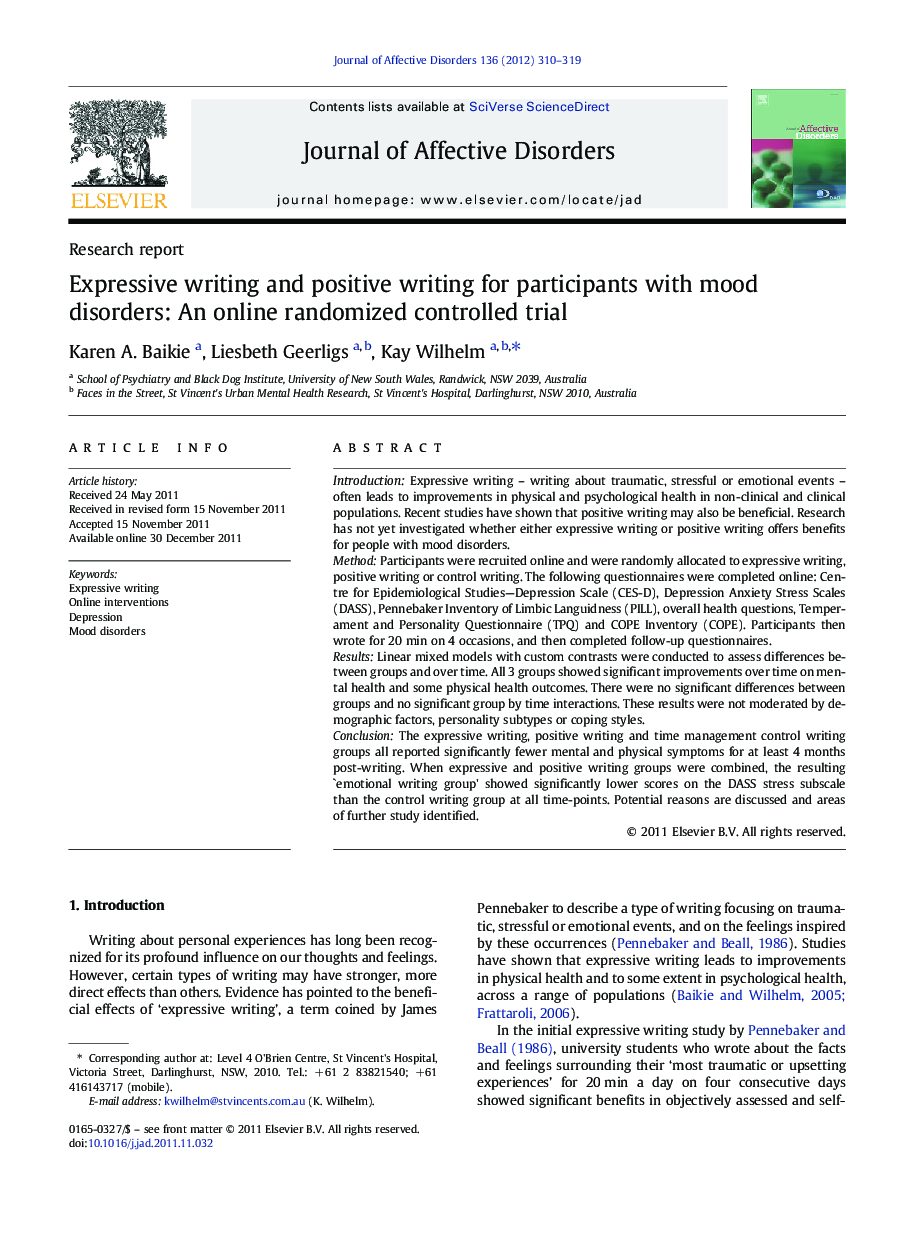| Article ID | Journal | Published Year | Pages | File Type |
|---|---|---|---|---|
| 6235351 | Journal of Affective Disorders | 2012 | 10 Pages |
IntroductionExpressive writing - writing about traumatic, stressful or emotional events - often leads to improvements in physical and psychological health in non-clinical and clinical populations. Recent studies have shown that positive writing may also be beneficial. Research has not yet investigated whether either expressive writing or positive writing offers benefits for people with mood disorders.MethodParticipants were recruited online and were randomly allocated to expressive writing, positive writing or control writing. The following questionnaires were completed online: Centre for Epidemiological Studies-Depression Scale (CES-D), Depression Anxiety Stress Scales (DASS), Pennebaker Inventory of Limbic Languidness (PILL), overall health questions, Temperament and Personality Questionnaire (TPQ) and COPE Inventory (COPE). Participants then wrote for 20 min on 4 occasions, and then completed follow-up questionnaires.ResultsLinear mixed models with custom contrasts were conducted to assess differences between groups and over time. All 3 groups showed significant improvements over time on mental health and some physical health outcomes. There were no significant differences between groups and no significant group by time interactions. These results were not moderated by demographic factors, personality subtypes or coping styles.ConclusionThe expressive writing, positive writing and time management control writing groups all reported significantly fewer mental and physical symptoms for at least 4 months post-writing. When expressive and positive writing groups were combined, the resulting `emotional writing group' showed significantly lower scores on the DASS stress subscale than the control writing group at all time-points. Potential reasons are discussed and areas of further study identified.
